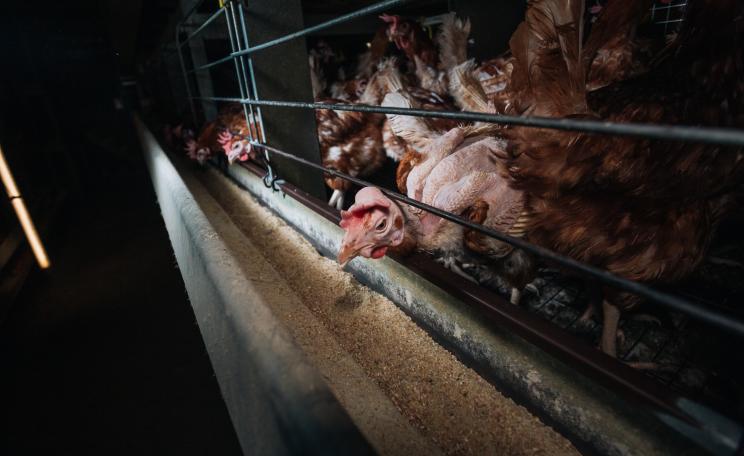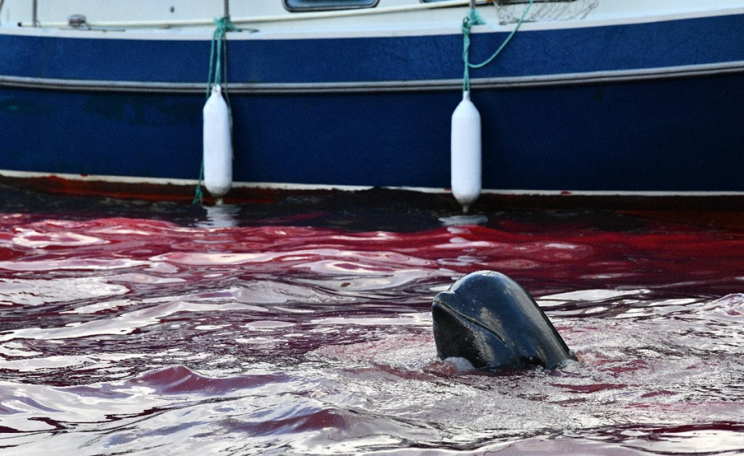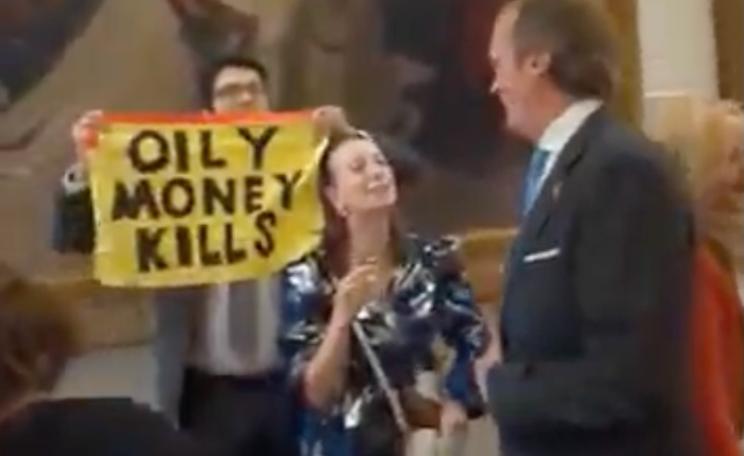Animal welfare matters to voters, and it matters to British businesses...animal protection NGOs are united in urging government to capitalise on Brexit as a once in a generation opportunity to protect and improve the lives of billions of animals.
The Theresa May government must ban live exports of animals for slaughter, clamp down on pet travel loopholes exploited by unscrupulous puppy farmers and ensure that future farming subsidies reward best animal welfare practices to meet its claim to support animal welfare, a consortium of 40 charities said today.
The UK Centre for Animal Law and Wildlife and Countryside Link has released a new report ‘Brexit – getting the best deal for animals’ calling on the UK Government to turn words into action for animals.
The report has now been supported by more than 40 of the UK’s best-known animal welfare charities, who have joined forces to make sure that animal protection is strengthened and not lost as Britain exits the EU.
Welfare protections
"The report recommends a suite of changes that would enable Ministers to realise their goal of being 'a world leader on animal welfare', a spokesperson said.
The charities are calling for animal welfare to be put centre stage in relevant future legislative decisions, including through the Animal Welfare Bill currently under consultation.
The groups are urging the government to commit to tangible actions such as: banning live exports of animals for slaughter; clamping down on pet travel loopholes exploited by unscrupulous puppy farmers; and ensuring that any farming subsidies reward best animal welfare practices.
The report also calls on the UK Government to demonstrate strong global leadership on animal welfare, including by committing to ensure that protecting and enhancing animal welfare is a priority in new trade agreements.
There are still major gaps in welfare law and issues where legal protections need significant improvement, the charities add, even though there are many strong EU animal welfare protections have improved welfare standards.
Consumer choice
Claire Bass, from the Humane Society International UK and Chair of Wildlife and Countryside Link’s Animal Welfare Group, said: "Legal protections from the EU have helped raise animal welfare standards but as the Secretary of State has said, there is still substantial room for improvement.
"Animal welfare matters to voters, and it matters to British businesses; the government can satisfy both by taking the tangible steps in our report. Animal protection NGOs are united in urging government to capitalise on Brexit as a once in a generation opportunity to protect and improve the lives of billions of animals."
Alan Bates, of the UK Centre for Animal Law, said: "Fixing gaping animal law flaws is a big opportunity for post-Brexit Britain and should be a key objective for the UK Government.
"Not only would boosting animal welfare protections help prevent thousands of animals from unnecessary suffering and even death, it also makes economic sense. Consumers in the UK, EU and beyond are increasingly looking for welfare-responsible products.
Animal welfare matters to voters, and it matters to British businesses...animal protection NGOs are united in urging government to capitalise on Brexit as a once in a generation opportunity to protect and improve the lives of billions of animals.
Warm words
"Improving labelling and welfare standards not only gives greater consumer choice in the UK, it could give a valuable boost for our products being traded abroad."
David Bowles, Head of Public Affairs at RSPCA: ‘Brexit offers huge opportunities to give animals a better deal in the UK.
"While the EU has given animal protections in many areas, it has also handcuffed our hands and stopped improvements to welfare in other areas like mandatory meat and milk labelling based on method of production, improving the slaughter of farm animals or stopping the sale of foie-gras, already banned in the UK.
"The Government has given lots of warm words on animal welfare, we now want to see cold hard action in the Animal Welfare Bill and post-Brexit legislation.’
The charities set out a top ten of animal welfare policies which they argue should be addressed during Brexit:
1. Close loopholes in the Pet Travel Scheme that allow the cruel trade in poorly bred pups from Central and Eastern European puppy-farms: If the UK raised standards by reintroducing blood testing requirements and improving border checks, it could help thousands of dogs affected.
2. Extend existing fur trade bans: Only the sale of cat, dog and seal fur is banned in the EU, despite some 90% of the British population wanting a stop to all fur sales.
3. Ban live exports for slaughter: Livestock legislation has remained the same for 12 years despite European scientists calling for improvements on conditions and journey times. Brexit gives an opportunity to ban cruel live exports for slaughter or fattening and strengthen journey times and standards.
4. Introduce strong welfare incentives in British farming: There is no meaningful animal welfare aspect in the existing Common Agricultural Policy, 80 percent of payments are essentially based on farm size. UK welfare incentives could help transform conditions for animals on British farms.
5. Introduce new animal product labelling laws: At present meat and milk don’t have to be labelled to identify how they were produced. Mandatory egg labelling saw free-range sales soar and should be replicated into other areas to aid consumer choice.
6. Ban imports of foie-gras: The UK has been unable to ban foie-gras imports because of the EU free movement of goods principle, despite a de facto UK ban on production already existing5 and 63% of the UK public supporting a ban on sales due to welfare concerns.
7. Work with UK fisheries to promote humane catches: Encouraging the UK fishing fleet to invest in new stunning technology would improve the welfare of billions of fish during capture.
8. Introduce legal protection for crabs, lobsters, octopuses and squids in the Animal Welfare Bill: These animals aren’t protected by EU law outside of use in laboratories , despite being proven to experience pain and suffering, and being protected in countries like New Zealand and Norway.
9. Adopt world-leading measures aimed at combatting wildlife trafficking and domestic wildlife crime: Wild animals are being widely exploited and traded in the UK despite EU legal protection. UK legislation enforcement should be bolstered post-Brexit to protect wild animals in trade by adopting a stricter ‘positive list’ approach – anything on the list can come in, anything not can’t.
10. Commitment to ending 'severe' suffering' in animal experiments, keep the cosmetics testing ban: The UK should; maintain the EU testing and marketing ban on animal-tested cosmetics, improve transparency around the use of animals in research, commit to eliminating experiments causing ‘severe’ suffering, and invest in humane non-animal technologies – 74 percent of us want more done to find alternatives.
This Author
Brendan Montague is the editor of The Ecologist and tweets at @EcoMontague. This article is based substantially on a press release from the Wildlife and Countryside Link.







